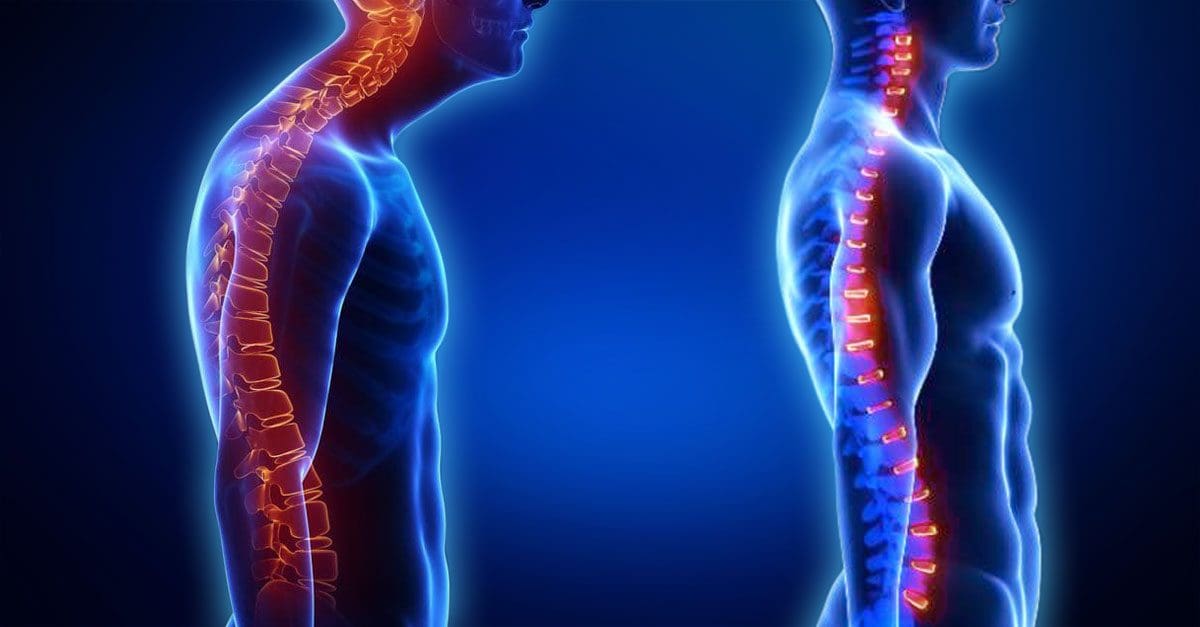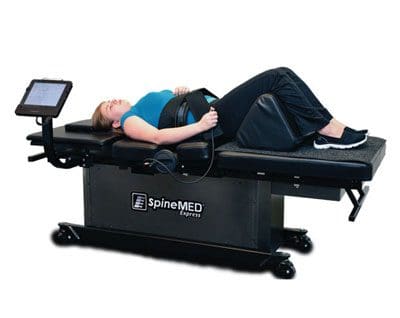Table of Contents
Introduction
The body is a fine-tuned machine that is on the move constantly. Whether it is everyday movements, lifting objects, going to work, or doing some sort of physical activity, the body is on the move and needs to rest when it is tired. Sometimes different scenario factors can affect the body like an injury, a condition that can cause autoimmune responses, or ordinary factors like reading a book, texting, or working with a computer can cause the body to slouch or develop poor posture. Luckily all is not lost as there are ways to help alleviate poor posture through non-surgical treatments. Today’s article focuses on poor posture, how it affects the back, and how decompression therapy can help individuals in correcting their poor posture. By referring patients to qualified and skilled providers specializing in spinal decompression therapy. To that end, and when appropriate, we advise our patients to refer to our associated medical providers based on their examination. We find that education is the key to asking valuable questions to our providers. Dr. Alex Jimenez DC provides this information as an educational service only. Disclaimer
Can my insurance cover it? Yes, it may. If you are uncertain, here is the link to all the insurance providers we cover. If you have any questions, please call Dr. Jimenez at 915-850-0900.
What Is Poor Posture?
Have you ever felt a dull ache around your shoulders and neck? How about hunching forward while working on the computer and feeling a pulled muscle on the side of your back? Or how about walking with a slouch? These types of scenario factors are all examples of poor posture. Research studies have found that when individuals do a combination of everyday actions, it can develop over time into a poor posture in the future. Poor posture does to the body is that it starts to weaken the lower back tissues and causes the back muscles, spinal discs, and joints to be pushed over the limit. This causes discomfort and pain to the body and the back.
Other research studies have found that the effects of poor posture cause a disturbance in the symmetry body axis that causes the body to develop poor posture. It also stated that when a person has developed poor posture and continues to perform work-related tasks in a slouch or hunched position, it can increase their chances of having back pain.
How Does Poor Posture Affect The Back?
Since poor posture happens unintentionally to everybody. It causes them to hunch forward for long periods while they are texting, reading a book, or working on their laptop, which can cause the neck and back muscles to strain. Research studies have shown that people who have poor posture and chronic low back pain have altered activation muscle patterns in their trunk muscles. What this does, is that it causes the trunk muscles that are around the body to decrease their movement, become stiff and rigid, and causes postural instability. Other research studies have stated that poor posture can contribute to prolonged sitting and standing, awkward positions, and heavy physical work can cause low back pain. Luckily there are ways to correct poor posture while also alleviating low back pain on the body.
DRX9000 Decompression Therapy For Poor Posture-Video
Do you feel intense pain in your neck and shoulders after working on the computer all day? How about stiffness around your torso area? How about aches on your lower back? This could be due to poor posture, and spinal decompression therapy can help alleviate that. The video above shows how the DRX9000, a decompression therapy machine, can help with poor posture and alleviate low back pain symptoms. Research studies have stated that when individuals sit for more extended periods, it can cause discomfort to the lower back muscles and cause the individual to be in a slouched sitting position. Decompression therapy helps the individual find relief by gently pulling on the spine and allowing the necessary nutrients to return to the spine. This causes the tense back muscles to relax and increases the spinal discs’ height. Suppose you want to learn more about how decompression therapy can benefit you. In that case, this link will explain what spinal decompression therapy does to help correct poor posture.
How Decompression Therapy Can Help With Poor Posture
Even though it is natural for people to develop a hunched position while doing everyday activities, this can lead to poor posture if not corrected right away. Sometimes it can happen naturally as the body ages causing the muscles to hunch over and straining the back muscles. Luckily there are ways to help many individuals that have developed poor posture. Some people do physical activities to strengthen the back muscles by working in their correct forms. Others go to chiropractic therapy to have their spine realigned, and some go to spinal decompression therapy to relieve back pain and get their spine gently pulled. Research studies have found that decompression therapy uses non-gravity to adjust the direction angle of how the traction will ease the pressure of the intervertebral disc on the spine. This will help many individuals who have suffered from poor posture. Other studies have shown that decompression therapy can also reduce the ligament stenosis around the spine, decrease the pressure on the spinal disc and nerve roots, and slowly help correct the individual’s posture. This allows many individuals to feel an instant relief on their back and become more mindful of their posture.
Conclusion
Having a correct posture can prevent back issues like low back pain, stiff muscles, and compressed nerves that can cause pain to an individual. Naturally, as the body age, it causes the back muscles to lean forward and cause strain on the lower back, shoulders, and neck. This causes discomfort and muscle weakness that can hinder a person’s daily life. Luckily, treatments like spinal decompression can help individuals slowly get their posture back and alleviate their lower back pain. Spinal decompression allows the spine to be stretched out gently and causes an increase in the height of the spinal disc. This allows the individual to be feeling instant relief on their back and continue on their wellness journey.
References
Vad, Vijay. “Is Poor Posture Causing Your Back Pain?” Spine, Spine-Health, 9 Jan. 2020, www.spine-health.com/blog/poor-posture-causing-your-back-pain.
Choi, Jioun, et al. “Effects of Flexion-Distraction Manipulation Therapy on Pain and Disability in Patients with Lumbar Spinal Stenosis.” Journal of Physical Therapy Science, The Society of Physical Therapy Science, June 2015, www.ncbi.nlm.nih.gov/pmc/articles/PMC4500015/.
Cramer, Holger, et al. “Postural Awareness and Its Relation to Pain: Validation of an Innovative Instrument Measuring Awareness of Body Posture in Patients with Chronic Pain.” BMC Musculoskeletal Disorders, BioMed Central, 6 Apr. 2018, www.ncbi.nlm.nih.gov/pmc/articles/PMC5889545/.
Jung, Kyoung-Sim, et al. “Effects of Prolonged Sitting with Slumped Posture on Trunk Muscular Fatigue in Adolescents with and without Chronic Lower Back Pain.” Medicina (Kaunas, Lithuania), MDPI, 23 Dec. 2020, www.ncbi.nlm.nih.gov/pmc/articles/PMC7822118/.
Nowotny, Janusz, et al. “Body Posture and Syndromes of Back Pain.” Ortopedia, Traumatologia, Rehabilitacja, U.S. National Library of Medicine, 2011, pubmed.ncbi.nlm.nih.gov/21393649/.
Swain, Christopher T V, et al. “No Consensus on Causality of Spine Postures or Physical Exposure and Low Back Pain: A Systematic Review of Systematic Reviews.” Journal of Biomechanics, U.S. National Library of Medicine, 26 Mar. 2020, pubmed.ncbi.nlm.nih.gov/31451200/.
Disclaimer
Post Disclaimer
Professional Scope of Practice *
The information herein on "Poor Posture Alleviated With Decompression Therapy" is not intended to replace a one-on-one relationship with a qualified health care professional or licensed physician and is not medical advice. We encourage you to make healthcare decisions based on your research and partnership with a qualified healthcare professional.
Blog Information & Scope Discussions
Our information scope is limited to Chiropractic, musculoskeletal, physical medicines, wellness, contributing etiological viscerosomatic disturbances within clinical presentations, associated somatovisceral reflex clinical dynamics, subluxation complexes, sensitive health issues, and/or functional medicine articles, topics, and discussions.
We provide and present clinical collaboration with specialists from various disciplines. Each specialist is governed by their professional scope of practice and their jurisdiction of licensure. We use functional health & wellness protocols to treat and support care for the injuries or disorders of the musculoskeletal system.
Our videos, posts, topics, subjects, and insights cover clinical matters, issues, and topics that relate to and directly or indirectly support our clinical scope of practice.*
Our office has reasonably attempted to provide supportive citations and has identified the relevant research study or studies supporting our posts. We provide copies of supporting research studies available to regulatory boards and the public upon request.
We understand that we cover matters that require an additional explanation of how it may assist in a particular care plan or treatment protocol; therefore, to further discuss the subject matter above, please feel free to ask Dr. Alex Jimenez, DC, or contact us at 915-850-0900.
We are here to help you and your family.
Blessings
Dr. Alex Jimenez DC, MSACP, RN*, CCST, IFMCP*, CIFM*, ATN*
email: coach@elpasofunctionalmedicine.com
Licensed as a Doctor of Chiropractic (DC) in Texas & New Mexico*
Texas DC License # TX5807, New Mexico DC License # NM-DC2182
Licensed as a Registered Nurse (RN*) in Florida
Florida License RN License # RN9617241 (Control No. 3558029)
License Compact Status: Multi-State License: Authorized to Practice in 40 States*
Presently Matriculated: ICHS: MSN* FNP (Family Nurse Practitioner Program)
Dr. Alex Jimenez DC, MSACP, RN* CIFM*, IFMCP*, ATN*, CCST
My Digital Business Card




